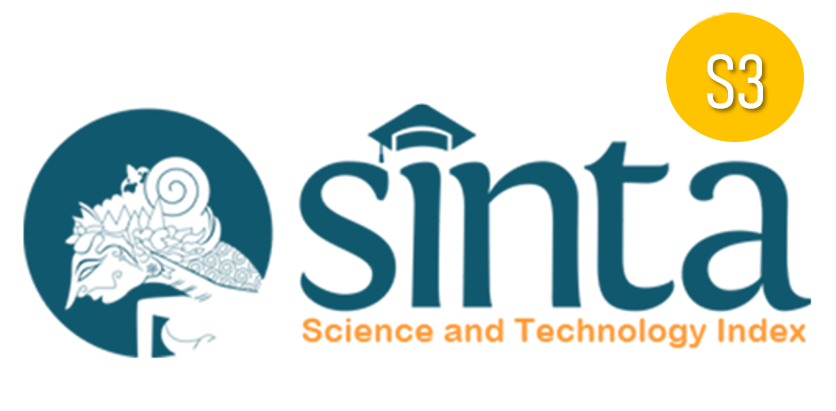Enhancing Elementary Students' Geometry Concept Understanding through GeoGebra and Color Nets Integration
Abstract
This study addresses the limited conceptual understanding of geometry (specifically the nets of cubes and cuboids) among Grade V students, who often rely on memorization rather than spatial reasoning. The research investigates the effect of combining GeoGebra, an interactive digital tool, with color nets as non-digital visual media to enhance comprehension. A pre-experimental one-group pretest-posttest design was used involving 21 students. Data were collected through concept tests and behavioral questionnaires, analyzed using descriptive statistics and a paired sample t-test. The findings revealed a significant improvement in students' geometry concepts after the intervention. Behavioral analysis also indicated positive attitudes toward mathematics learning with GeoGebra and color nets. The improvement is attributed to the media’s interactive and visual strengths, supporting students’ spatial reasoning. This study suggests that integrating digital and tangible media fosters deeper conceptual grasp and engagement in elementary geometry learning.
Keywords
Full Text:
PDFReferences
Arbain, N., and Shukor, N. A. (2015). The effects of GeoGebra on students achievement. Procedia-Social and Behavioral Sciences, 172, 208-214.
Bhagat, K. K., and Chang, C. Y. (2015). Incorporating GeoGebra into geometry learning-a lesson from India. Eurasia Journal of Mathematics, Science and Technology Education, 11(1), 77-86.
En-nhiri, A., Radi, M., Dahmani, K., Er-rahmany, N., Touir, R., Echarghaoui, R., and Larhzil, H. (2025). Effectiveness of Cabri II Plus software in enhancing academic achievement and motivation in learning right triangles and Pythagorean theorem among second-grade middle school students. Eurasia Journal of Mathematics, Science and Technology Education, 21(2), em2589.
Fitriyah, I., Nurimani, N., and Marlina, A. (2023). The Effect of Using Cabri 3D Software on Students' Ability to Understand Mathematical Concepts. In Proceeding of International Conference on Education, 2, 113-119.
Hohenwarter, M., and Fuchs, K. (2004). Combination of dynamic geometry, algebra and calculus in the software system GeoGebra. In Computer Algebra Systems and Dynamic Geometry Systems in Mathematics Teaching Conference, 2002, 1-6.
Jelatu, S., and Ardana, I. (2018). Effect of geogebra-aided react strategy on understanding of geometry concepts. International journal of instruction, 11(4), 325-336.
Kirana, R., Hidayah, I., and Suyitno, A. (2025). Development of virtual geogebra classroom media to improve spatial ability of high school students through react model. Jurnal Didaktik Matematika, 12(1), 196-208.
Latri, L., Juhari, A., Hermuttaqien, B. P. F., and Hartoto, H. (2020). Efektivitas media pembelajaran Geogebra dalam meningkatkan pemahaman konsep geometri calon guru sekolah dasar. Jurnal Inspirasi Pendidikan, 10(2), 169-179.
Magdalena, I., Annisa, M. N., Ragin, G., and Ishaq, A. R. (2021). Analisis penggunaan teknik pre-test dan post-test pada mata pelajaran matematika dalam keberhasilan evaluasi pembelajaran di sdn bojong 04. Nusantara, 3(2), 150-165.
Nurdin, E., Amir, Z., Risnawati, R., Noviarni, N., and Azmi, M. P. (2019). Pemanfaatan video pembelajaran berbasis Geogebra untuk meningkatkan kemampuan pemahaman konsep matematis siswa SMK. Jurnal Riset Pendidikan Matematika, 6(1), 87-98.
Nurzannah, N., Muliana, M., Herizal, H., Fajriana, F., and Mursalin, M. (2021). The effect of REACT strategy assisted by GeoGebra software on students' mathematical representation ability. Malikussaleh Journal of Mathematics Learning (MJML), 4(2), 90-97.
Putrawangsa, S., and Hasanah, U. (2018). Integrasi teknologi digital dalam pembelajaran di era industri 4.0: Kajian dari perspektif pembelajaran matematika. Jurnal Tatsqif, 16(1), 42-54.
Rasim, R., Rosmansyah, Y., Langi, A.Z., and Munir, M. (2021). Immersive intelligent tutoring system for remedial learning using virtual learning environment. Indonesian Journal of Science and Technology, 6(3), 507-522.
Rhilmanidar, R., Ramli, M., and Ansari, B. I. (2020). Efektivitas modul pembelajaran berbantuan software geogebra pada materi bangun ruang sisi datar. Jurnal Didaktik Matematika, 7(2), 142-155.
Shadaan, P., and Leong, K. E. (2013). Effectiveness of using geogebra on students' understanding in learning circles. Malaysian Online Journal of Educational Technology, 1(4), 1-11.
Uwurukundo, M. S., Maniraho, J. F., and Tusiime, M. (2021). Effects of GeoGebra on students’ attitudes towards learning geometry: A review of literature. African Journal of Educational Studies in Mathematics and Sciences, 17(2), 127-138.
Zulnaidi, H., Oktavika, E., and Hidayat, R. (2020). Effect of use of GeoGebra on achievement of high school mathematics students. Education and Information Technologies, 25(1), 51-72.
DOI: https://doi.org/10.17509/ijert.v6i1.88072
Refbacks
- There are currently no refbacks.
Copyright (c) 2025 Universitas Pendidikan Indonesia (UPI)

This work is licensed under a Creative Commons Attribution-ShareAlike 4.0 International License.







.png)




